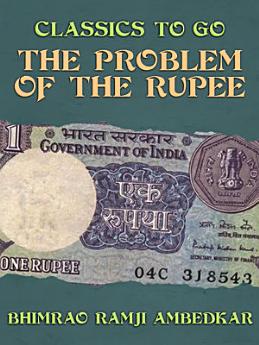The Problem Of The Rupee
Aug 2021 · Otbebookpublishing
5.0star
2 reviewsreport
Ebook
341
Pages
family_home
Eligible
info
reportRatings and reviews aren’t verified Learn More
About this ebook
Excerpt: "It is alleged sometimes that India does not want gold coins. I feel considerable difficulty in believing that gold coins of suitable size would not be convenient in a country with the climate and other circumstances of India. The allegation is suspiciously like the old allegation that the "Englishman prefers gold coins to paper," which had no other foundation than the fact that the law prohibited the issue of notes for less than £5 in England and Wales, while in Scotland, Ireland, and almost all other English-speaking countries notes for £1 or less were allowed and circulated freely. It seems much more likely that silver owes its position in India to the decision which the Company made before the system of standard gold and token silver was accidentally evolved in 1816 in England, and long before it was understood: and that the position has been maintained not because Indians dislike gold, but because Europeans like it so well that they cannot bear to part with any of it."
Ratings and reviews
5.0
2 reviews
nitin waghole
- Flag inappropriate
August 9, 2025
👌 very futuristic book
ravi kochale
- Flag inappropriate
May 18, 2025
very nice
About the author
Bhimrao Ramji Ambedkar (1891-1956), often revered as Babasaheb, was a towering intellectual, social reformer, and the principal architect of the Indian Constitution. Born into a Dalit family in British India, Ambedkar faced severe discrimination, which fueled his lifelong crusade against social injustice and caste oppression. Despite these challenges, he excelled academically, earning doctorates from Columbia University and the London School of Economics.Ambedkar's literary contributions extend beyond his prolific legal and political writings; he was a voracious reader and a profound thinker whose works addressed the socio-economic disparities and the plight of the marginalized. His essays and speeches are a testament to his revolutionary ideas on equality, human rights, and economic reforms. One of his most controversial yet impactful acts was his conversion to Buddhism in 1956, along with millions of his followers, as a form of protest against the caste system. This bold move not only challenged the religious orthodoxy but also inspired contemporary writers and activists to explore themes of social justice and human dignity.Ambedkar's influence on modern India is immeasurable. His ideas continue to resonate, inspiring generations to fight for equality and justice. His legacy as a radical thinker, who envisioned an inclusive and democratic society, remains a cornerstone of India's ongoing struggle for social equity.
Rate this ebook
Tell us what you think.
Reading information
Smartphones and tablets
Install the Google Play Books app for Android and iPad/iPhone. It syncs automatically with your account and allows you to read online or offline wherever you are.
Laptops and computers
You can listen to audiobooks purchased on Google Play using your computer's web browser.
eReaders and other devices
To read on e-ink devices like Kobo eReaders, you'll need to download a file and transfer it to your device. Follow the detailed Help Center instructions to transfer the files to supported eReaders.








